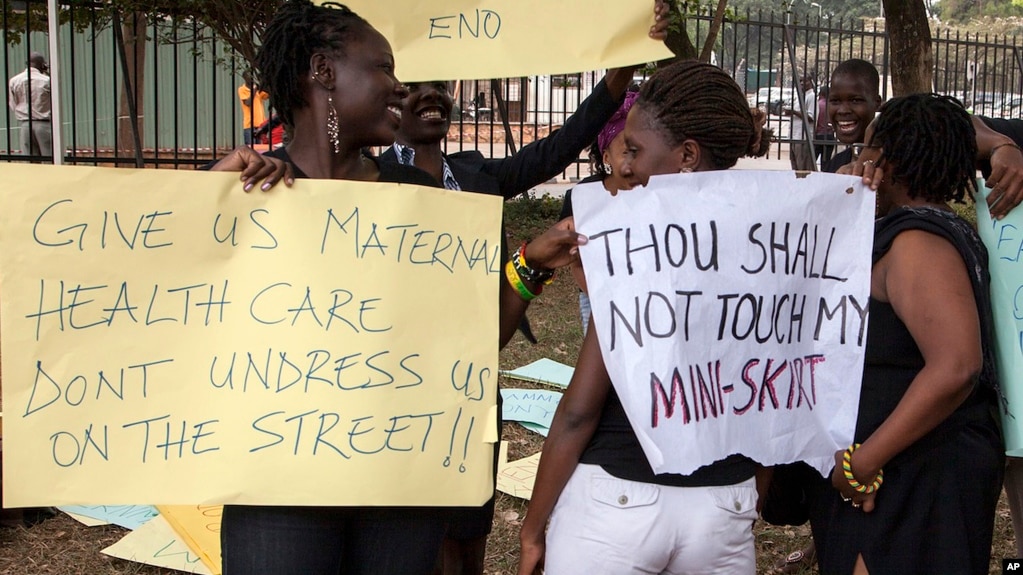- Workers Resist New Dress Code
Women activists in Uganda have criticized the new dress code as a distraction from the real issues in the country.
Perry Aritua, executive director of Women’s Democracy Network, was one of them.
“Is [a woman] saying that men do not have any type of self-control? When a girl is dressed a certain way, that doesn’t mean she’s calling for your attention. Let us focus on the real issues that Ugandans are grappling with – the theft of our public resources, the inefficiency in service delivery, the absenteeism in public service, the capacity needs that public service has,” Aritua said.
The Ministry of Public Service issued the directive on “decent dressing” Tuesday. It prohibits female staff from wearing tight clothing, open-toed shoes, and skirts or dresses above the knees. Bright-colored nail polish, hair extensions, “exaggerated make-up,” and chandelier earrings are also on the banned list.
The directive didn’t spare men either. All male officers are required to dress in neat, dark trousers but not ones that are tight-fitting. And only closed-toe black and brown shoes should be worn to the office, along with a jacket and tie.
Adah Muwanga, the human resource manager at the Ministry of Public Service, defends the new measures.
“People in Uganda have a perception of what a public officer should look like and this is the image we are trying to protect and preserve. We are saying not above the knee, and for one reason, ‘above the knee’ – you know what it means, it can also [be] tantamount to sexual harassment, because when you sit you are exposing your thighs, which is not generally accepted and it can distract others from work,” Muwanga said.
Rights groups say the previous 2010 public order requiring dress to be neat and practical for one’s job was sufficient.
Ugandans have penned opinion pieces in local media against the dress code with one lawyer writing that “rights aren’t taken away overnight. They are taken away in small bits.”
The state-owned newspaper published photos it said were taken Wednesday of three civil servants – a man and two women – not adhering to the new dress code.
VOA caught up with one public worker on the issue.
“Me I think, my bright nails cannot distract someone, so the government should not discuss about that,” said the woman, declining to give her name.
The penalties for disobeying the new dress code are unclear. The directive simply said cases would be referred to the permanent secretary of the Ministry of Public Service.









